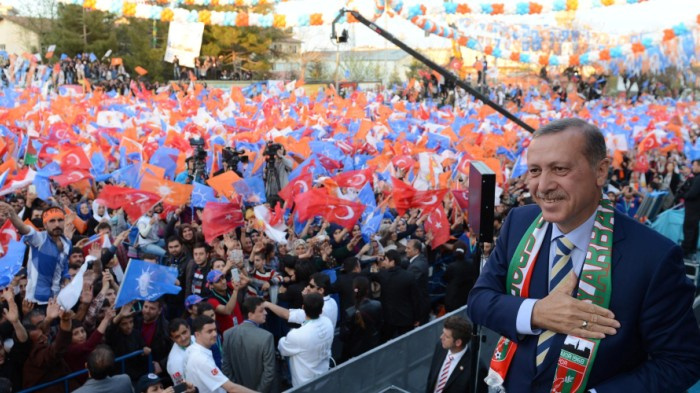AKP Discourse to Continue Dominance over Turkish Politics

By: Mohammad-Ali Dastmali
The results of parliamentary election in Turkey show that with a slight majority, citizens have once again placed trust into Justice and Development Party (AKP) to rule the country. From both political and social aspects, votes re-cast in favor of AKP are surprising. The last parliamentary election that was held in June had foiled AKP efforts to form an absolute majority, with only 232 seats of the parliament secured. The new wave of support in the recent election will however aid Prime Minister Ahmet Davutoglu to form his cabinet with strong support from 316 AKP representative-elects. AKP's sweeping victory was not the only surprise of the election, the Nationalist Movement Party (MHP) and its leader Devlet Bahçeli also surprised observers by their weak performance.
To a large extent, AKP's victory was due to its success in wresting a significant number of votes from both Turkish and Kurdish nationalists. The Nationalist Movement Party, for instance, lost 36 seats to AKP in yesterday elections. MHP Secretary General Bahceli had put forward tough conditions for coalition with Davutoglu during negotiations which followed indecisive elections of June 7, 2015. He might lament the lost opportunity now.
MHP was not the only party in loss. The Peoples' Democratic Party (HDP) lead by Selahattin Demirtaş, known to have close ties to PKK, also suffered a heavy blow, losing 21 seats in the parliament. An overview of voting pattern shows that compared to June elections, from a total of 81 provinces, in eighty provinces AKP votes have grown by a percent ranging from 3% to 18%.
Interestingly, the highest increase in vote for AKP relates to Kurdish-dominated provinces of south and southeast. Analysis suggests that conservative Islamist Kurdish citizens that had voted for HDP in the previous election have now opted for political and economic stability, hence voting for Davutoglu. The Turkish lira witnessed the rise of its value vis-à-vis the US dollar immediately after release of election results and AKP announcement of its decision to form a single-party cabinet.
Turkey Army's revitalized battles against PKK also contributed to AKP's victory. Massive use of drone- and satellite-collected intelligence bolstered Turkey's control over its borders with Iraq and led to significant victories against PKK. Such achievements were not left unnoticed by Turkish nationalists and injected a fresh dose of support for AKP. Islamist Kurdish citizens also turned towards AKP and Davutoglu, coming to believe that support for PKK could only worsen instability in the region.
With AKP's new political victory, prospects of negotiation with PKK spiritual leader Abdullah Ocalan and the Peace and Democracy Party (BDP) are dim. Davutoglu may prefer to establish ties with the Islamist faction of the Kurdish community, instead of pro-PKK Kurdish nationalists, and pave the way for their stronger presence in political and civil sphere in order to secure their vote in future elections.
One other point should not be missed: despite securing 316 seats in the parliament, AKP did not gain enough votes to convert the political establishment from a parliamentary system into a presidential system. In the meantime, the three opposition parties, CHP, MHP and HDP show no promising signs of ability to come into power in the following years.
Will Tehran-Ankara relations thaw after the election? It is hardly likely. Erdogan and Davutoglu will not withdraw from their determination to topple Assad. Iran, on the other hand, views Assad as the cornerstone of its Syrian policy. So we might not see bilateral relations between the two countries to become friendly as before in any time soon.
* This piece was originally published in Iranian Diplomacy Persian.

